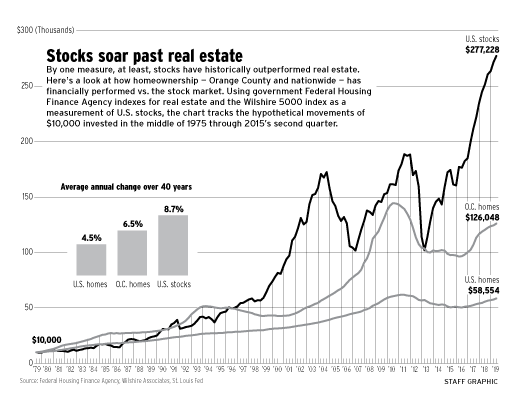The franchise business model has a storied history in the United States. A franchise is a business in which independent contractors use the rights to the name, logo, and products of a larger company to operate a single enterprise. The franchisee buys this right to franchise goods or services with an existing business model and brand. If the franchisor has many partners, the contract may take the form of a business format franchise, the same contract for all franchisees.
In exchange for the franchise, the franchisee usually pays the franchisor an initial fee and an annual license fee. By definition, franchising has ongoing commissions that must be paid to the franchisor as a percentage of sales or revenue. In terms of capital investment, your franchise fee will depend on the profitability of your business. Franchise fees are the costs that potential franchisees pay up front to operate the franchise.
The one-time fee the franchisor estimates for you for the privilege of using the business concept, attending their training program, and understanding the business as a whole will also be a recurring fee, usually between 2% and 10%, or monthly number. Business opportunities tend to be cheaper than franchises, and there are often no ongoing royalties. A franchise business has lower overhead and operating costs because the franchisee can take on tasks such as maintenance and cleaning.
A franchise offers entrepreneurs the opportunity to acquire an established business with a brand name and ongoing processes. Some of the widely recognized benefits of a franchise include a turnkey business formula, market proven products and services and, in many cases, a well established brand name. In addition to a well-known brand, buying a franchise provides many other benefits that are not available to an entrepreneur starting a business from scratch.
You can become an entrepreneur by starting your own business or by purchasing a franchise from a major brand. If buying an existing business doesn’t sound like a good idea to you, but starting from scratch seems a little intimidating, you might consider becoming a franchise owner. Franchising is a great way to start a business, but before you decide to spend thousands of dollars buying one, you need to do your due diligence.
When you start looking into franchising and business opportunities, it’s helpful to know the terminology and have a basic understanding of franchising. You, as a potential franchisee, will be helped to make a more informed decision about how the advantages and disadvantages of franchising apply to you personally before approaching one or more franchisors.
The franchise rule requires franchisors to disclose key operating information to potential franchisees. FTC Franchise Rules require covered franchisors to provide full disclosure of the information a potential franchisee needs to make a rational decision about whether or not to invest. This disclosure must occur at the first face-to-face contact when the subject matter of the franchise is being discussed, and at least 10 business days before signing any franchisee agreement or accepting money.
An affiliate is the owner of a larger company that sells licensing rights to its business, and an affiliate is a third party owner and operator of business centers. Key Points A franchise is an activity in which the owner licenses his or her activities—along with their products, brand, and knowledge—in exchange for a franchise fee. When a company wants to increase its market share or geographic reach at a low cost, it can franchise its product and brand.
McDonald’s
McDonald’s franchise business model is a proven, profitable business strategy, but it has many drawbacks as well. The risk of counterparty risk is one of the main challenges. As an independent franchisee, you will have to invest capital to open a McDonald’s location or to become a franchisee of the company. However, McDonald’s franchisees usually have ample capital to operate the business. It is important that franchisees stay aligned with the company on capital-intensive initiatives. In addition to the risks of counterparty risk, you will also have to deal with the risks of inconsistent brand image, food safety issues, and operational problems. As a franchisee, you’ll also need to consider McDonald’s business structure and agreement. While the franchise agreement will dictate the size and location of the restaurant, it will also specify the capital that you need to open and operate
A key to McDonald’s franchise success is its ability to scale internationally. Having a global reach and a consistent product and service experience has helped the company grow rapidly worldwide. The McDonald’s franchise business model is also a great way to standardize operations across locations and provide consistent food and service to customers. By understanding the needs of your target customer base, you’ll be better able to communicate effectively with them. This way, you’ll be able to target the exact demographic you need to succeed.
While the McDonald’s franchise business model requires you to invest a substantial amount of money, you can be profitable within two years. The franchise’s profitability is directly related to the number of customers you serve, as sales are directly related to profits. For example, the company’s combo meal plan generates the highest revenue for franchisees. In other words, as you increase your sales, you make more money. By comparison, McDonald’s franchisees have a higher profit margin than their competitors.
Another advantage of a McDonald’s franchise is the ability to pay a high down payment, which is typically forty percent in the case of new franchises. For an existing franchise, a down payment of only twenty-five percent is required. The remainder can be financed for up to seven years. Moreover, franchisees can take advantage of one of the country’s lowest loan rates. So, if you have the cash and the resources to invest, it’s a good idea to consider a franchise with a high ROI.
A major disadvantage of a McDonald’s franchise is that you can’t partner with other McDonald’s franchisees. However, if you invest in a McDonald’s franchise, you’ll be able to reap the rewards of having your own restaurant. The company is already established and has perfected its menu, operations, and marketing strategy, and this advantage can make the business model attractive for a new franchisee.
Chick-fil-A
There are several pros and cons to Chick-fil-A’s franchise structure. While franchisees pay a high franchise fee (which can be up to 15% of sales), the parent company will still retain control of the restaurant. The franchisor will receive a percentage of your sales and will pay you rent on the restaurant. Chick-fil-A’s royalty fees are among the highest of any franchise system. This can make the franchise model appealing to entrepreneurial types, but franchisees must be willing to pay high start-up costs to be successful.
Franchisees are expected to maintain Christian values and be involved in the community. While Chick-fil-A franchisees run every aspect of the business, they are not considered “employees” by the law. While they may be responsible for five percent to seven percent of the revenue at their franchised restaurants, they do not own the restaurant or its equipment and do not have an equity stake in the company.
Before applying for a Chick-fil-A franchise, be prepared to give it your full time commitment. Applying for a franchise requires dedication, leadership skills, and community involvement. Applicants should have an entrepreneurial spirit, be able to make long-term commitments to their new business, and possess exceptional customer service skills. Once they have a good business plan and the necessary resources, they can then focus on developing a store in the chosen area.
Franchisors can expect to spend only minimal time on the business’s operational tasks. The Chick-fil-A franchise is an excellent choice if you have the time and money to dedicate to operating your new restaurant. You can focus on marketing, customer relations, and accounting, while the franchisor does the rest. Moreover, it does not require any prior bankruptcy. There are several drawbacks to Chick-fil-A’s franchise business model.
Franchisors who can afford the franchise fees should have a substantial net worth to start a new Chick-fil-A location. In addition to the low startup costs, the franchisor pays for everything up front, including furniture, equipment, and building fixtures. The franchisee pays the franchisor 15% of sales and splits profits with the franchisor. This can make for a profitable business model, but it can also lead to less profit.
Franchisors should be aware of the potential downsides to Chick-fil-A’s franchise model. The brand is well known for being popular with customers and has an excellent reputation. In fact, some franchisees can even make a killing by running their own Chick-fil-A location. Chick-fil-A also has several franchise business models that are similar to franchised operations.
Chick-fil-A’s customer service reputation is one of its strongest assets. Even in drive-through lines, employees are trained to say “my pleasure” instead of “you’re welcome.” In fact, the brand has a reputation for offering superior service to customers. Chick-fil-A’s business model allows franchisees to focus on improving the customer experience and enhancing the customer experience. Chick-fil-A’s restaurants are consistently ranked as among the best in the industry in customer satisfaction, and customers rave about the cleanliness and fast service.
Co-Op Marketing Board
The co-op marketing board consists of representatives from franchise owners who work with the parent company to craft the company’s marketing strategy and brand messaging guidelines. This model balances franchisor control with franchisees’ voice. As a result, the parent company retains a great deal of control over the marketing strategy while franchisees still have a voice. Ultimately, it makes more sense to create a co-op marketing board than to start a franchise from scratch.
In order to create a strong and effective association, a co-op must be legitimately licensed by the state to represent its members. While few issues enjoy broad consensus among co-op members, achieving consensus on a transformational policy is challenging. For example, credit unions did not have unanimous support to serve business accounts when opportunities arose. Similarly, it is difficult to reach consensus on a franchise expansion initiative.
In addition to being unique in some industry sectors, the co-op business model has its advantages. It allows localized ownership, while still maintaining uniform standards. It also allows the business to reflect its owners’ personality and target market. No one knows a business better than the owner, so it is important to choose the way in which it should be managed. The co-op business model is one that works best for you.
The CFL’s original idea was to build a franchise system, but it ultimately failed because it did not provide answers to prospective worker-owners. It also failed to give clear expectations for the franchise model. For example, the Staten Island group wanted to have a brand name that was exclusive to their location and not available to other CFL locations. Sharing a brand with other locations would have been counterproductive to the CFL’s goal to create a broader consumer brand.
When it comes to cost, co-ops often win hands down. Franchise fees typically range from $15,000 to $40k. A co-op business model allows franchise owners to keep more of their profits. Franchise fees can run anywhere from 1% to 7% of gross earnings. It may be difficult to compare co-ops to franchises, but many of these models have similarities. It is worth exploring the co-op marketing board’s benefits and drawbacks and determine which one would work best for you.
There are two important reasons to have a co-op marketing board. One is to reduce the risks of potential conflicts of interest. This is especially important in the franchise business model. It allows franchisors to manage marketing funds more effectively. And if you do not have a central marketing board, co-ops risk being sued by their franchisees. Besides, marketing funds will help franchisees understand why their money is going to be spent collectively.
Last Notes
Franchising can be very profitable, especially when you create a solid business plan that helps increase your bottom line. Franchises offer discerning entrepreneurs a stable and proven business model. The most profitable franchises rarely fail, which eliminates the risks usually associated with starting a new business. Adopting a franchising business development strategy for the sale and distribution of goods and services minimizes the capital investment and liability risk of the franchisor.
The competition doesn’t have to be in the form of the same franchise; too many local businesses in the same sector located in the same area can also undermine sales. Home franchises are becoming popular as they are considered an easy way to start a business as they can provide a low entry barrier to entrepreneurship. A franchise is a popular way for entrepreneurs to start a business, especially when they enter a highly competitive industry like fast food. Despite mandatory upfront payments, you don’t need to have all the money before starting a franchise business; There are several funding options to consider.
Join The Million Dollar Business Creation (MDBC)™ – Lauching – 50% Discount
Learn How to Start & Scale your Business from 0 to 7 Figures in Less than 18 Months
On the Million Dollar Business Creation, you will learn:
- Secrets of building a multi-million dollar business starting from scratch
- You don’t need to have lots of capital to invest, a prestigious degree or years of experience
- Whether you are just starting out in business or an experienced entrepreneur, this program will give you powerful ideas and strategies that will multiply your business sales and profits exponentially
- Why 90% of Businesses Fail…and how the 10% Succeed
- A Step-by Step Guide on building a business system that works without you How to start a business with very little capital and turn in millions within 18 months
Helpful Links:
Homepage
About
Contact
Personal Development Partner




